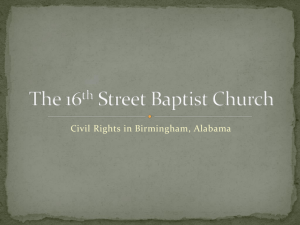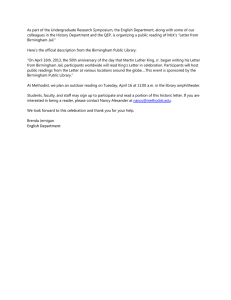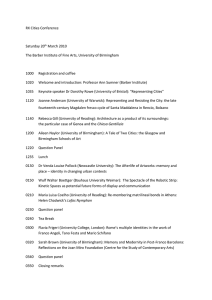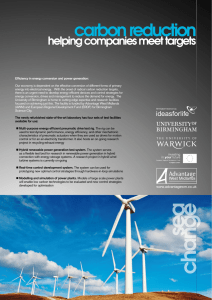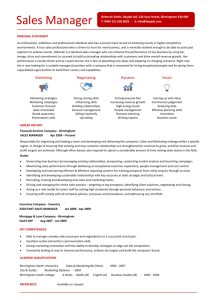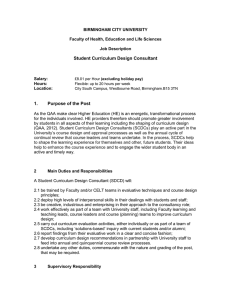Reconciling formal and pragmatic aspects of computing Back to School for Computing?
advertisement
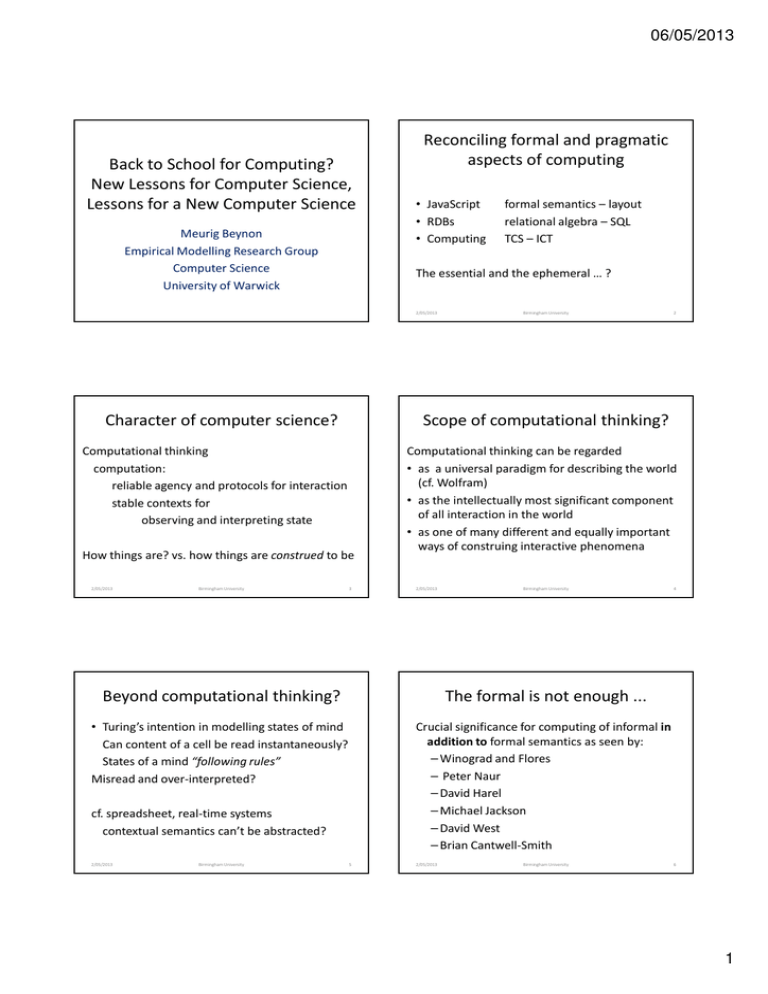
06/05/2013 Back to School for Computing? New Lessons for Computer Science, Lessons for a New Computer Science Meurig Beynon Empirical Modelling Research Group Computer Science University of Warwick Reconciling formal and pragmatic aspects of computing • JavaScript • RDBs • Computing The essential and the ephemeral … ? 2/05/2013 Character of computer science? How things are? vs. how things are construed to be Birmingham University Birmingham University 3 Computational thinking can be regarded • as a universal paradigm for describing the world (cf. Wolfram) • as the intellectually most significant component of all interaction in the world • as one of many different and equally important ways of construing interactive phenomena 2/05/2013 Birmingham University Beyond computational thinking? The formal is not enough ... • Turing’s intention in modelling states of mind Can content of a cell be read instantaneously? States of a mind “following rules” Misread and over-interpreted? Crucial significance for computing of informal in addition to formal semantics as seen by: – Winograd and Flores – Peter Naur – David Harel – Michael Jackson – David West – Brian Cantwell-Smith cf. spreadsheet, real-time systems contextual semantics can’t be abstracted? 2/05/2013 Birmingham University 2 Scope of computational thinking? Computational thinking computation: reliable agency and protocols for interaction stable contexts for observing and interpreting state 2/05/2013 formal semantics – layout relational algebra – SQL TCS – ICT 5 2/05/2013 Birmingham University 4 6 1 06/05/2013 Dual semantics Mathematics Dealing with the contextual semantics • William Kent – DB paradigms and DB design • Willard McCarty on Humanities Computing – Music and formal and informal semantics • Cantwell-Smith – computing as/and the science of intention – mysterious nature of intentional meaning • William James ‘we cannot begin to understand’ 2/05/2013 Birmingham University Richness of algorithmic contributions to maths: Galois, Gauss, Euclid, Turing, ... Aesthetic aspect of great mathematical insights Contrast nature of ‘optimal’ algorithms for esoteric probs with Valiant’s #P-completeness ... mathematics not merely a formal discipline experience / intuition crucially significant 7 2/05/2013 Emil Post – posthumously (1965) Birmingham University 8 Empirical Modelling ... perhaps the greatest service the present account could render would stem from its stressing of its final conclusion that mathematical thinking is, and must be, essentially creative. It is to the writer's continuing amazement that ten years after Gödel's remarkable achievement [1940s] current views on the nature of mathematics are thereby affected only to the point of seeing the need of many formal systems, instead of a universal one. Rather has it seemed to us to be inevitable that these developments will result in a reversal of the entire axiomatic trend of the late nineteenth and early twentieth centuries, with a return to meaning and truth. Postulational thinking will then remain as but one phase of mathematical thinking. Key concepts observable, dependency, agency grounding the formal in the experiential William James – radical empiricism David Gooding – construal Latour - constructivism Absolutely unsolvable problems and relatively undecidable propositions, in M Davis, The Undecidable, Raven Press Books, 1965 2/05/2013 Birmingham University 9 2/05/2013 Birmingham University 11 References • The EM website at go.warwick.ac.uk/em • Modelling with experience: construal and construction for software (Jan 2012) go.warwick.ac.uk/em/publications/papers/114 • Realising Software Development as a Lived Experience (Oct 2012) go.warwick.ac.uk/em/publications/papers/121 • Redressing the past http://www.dcs.warwick.ac.uk/report/pdfs/cs-rr-421.pdf 2/05/2013 Birmingham University 12 2/05/2013 Birmingham University 13 2
